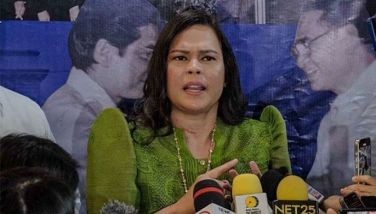A crime against public interest

October 26, 2006 | 12:00am
 This case may be timely and relevant in connection with the still raging controversy on the nursing exam leakage. It involves the supposed activities of a syndicate which assists young college graduates in procuring licenses for the practice of their profession without really sweating it out. Undoubtedly, this kind of activity is detrimental to society because licensing impresses on the professional certain degree of competence in his field to whom society in general blindly puts its trust in availing of their services. More disgusting here is that the people behind such an activity could be the public officers who are entrusted with the task of protecting society’s interest. The framers of our Penal Code were apparently aware of this pernicious practice when it included a provision therein which imposes a penalty for public officers or employees, or any office for that matter, who shall falsify a public and official document by taking advantage of their official position. The following case illustrates this provision.
This case may be timely and relevant in connection with the still raging controversy on the nursing exam leakage. It involves the supposed activities of a syndicate which assists young college graduates in procuring licenses for the practice of their profession without really sweating it out. Undoubtedly, this kind of activity is detrimental to society because licensing impresses on the professional certain degree of competence in his field to whom society in general blindly puts its trust in availing of their services. More disgusting here is that the people behind such an activity could be the public officers who are entrusted with the task of protecting society’s interest. The framers of our Penal Code were apparently aware of this pernicious practice when it included a provision therein which imposes a penalty for public officers or employees, or any office for that matter, who shall falsify a public and official document by taking advantage of their official position. The following case illustrates this provision.
Romy, Jake and Jimmy were classmates in law school who never really took studying seriously. Three times a week, they would go to their favorite hangout and drink their troubles away. Fortunately for them, in spite of such an attitude they were able to graduate from law school. That was not the end of their troubles though. They still had to hurdle the bar examinations before they would be admitted to the practice of law. The bar examinations proved to be no joke and all three of them got failing grades. And so they concocted another plan. They came in contact with Bonny, a court employee, who claimed he can secure a revision of their grades for a fee. A series of meetings were held with Bonny. It was agreed that Bonny would induce a janitor to pull out the Roll of Attorneys which is the register kept by the Supreme Court containing the names of candidates who passed the bar. This Roll would be delivered to the three who would substitute three names from said book with their own names.
And so the plan was carried out. The three erased three names from said Roll and replaced them with their names and signatures. Unfortunately, the substitution was discovered. The erasures were not so cleanly done that it was easily detected. Romy, Jake and Jimmy were eventually indicted for their criminal act. In a fit of remorse, Romy implicated Bonny as their inside contact. This was confirmed by the janitor.
During trial, Bonny denied participation in the crime. He admitted having received P900 from Romy but he said he received the money from another court employee and he was ignorant of the criminal purpose for which the money was paid. Was Bonny guilty?
Yes. There is no doubt that Bonny participated in the offense. Romy and the janitor testified to his act of falsification which was aggravated by the fact that he availed himself of his position as employee of the court in the commission of the crime. This case is similar to the ruling in the cases of People vs. Ponferrada, 54 Phil. 68 (1929), People vs. Segovia, 54 Phil. 75 (1929). It affirms once more the truism that the "hard way is the only enduring way".
E-mail at: [email protected] or [email protected]
BrandSpace Articles
<
>
- Latest
- Trending
Trending
Latest



























